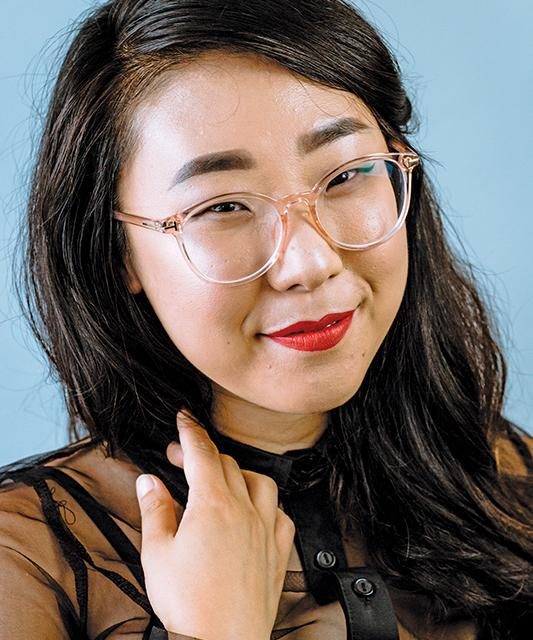Each section of Franny Choi’s first collection of poems, Soft Science, begins with a poem labeled a “Turing Test.” Alan Turing devised his test early in the search for artificial intelligence as a way to evaluate when machines might achieve independent abilities with language use and, perhaps, consciousness.
The test is a perfect metaphor for the two thematic concerns that shape this powerful book: identity (in Choi’s case, Asian American and queer) and the demands and restrictions of language. In her very first “Turing Test” poem, an interviewer asks “why do you insist on lying?” The cyborg–a “persona” who recurs throughout the book and who may or may not be the poet–responds: “I’m an open book / you can rifle through my pages / undress me anywhere / you can read / anything you want / this is how it happened / I was made far away / & born here.”
Choi’s poems encompass fruitful differences. She is fascinated by the formal nature of language (one poem is titled “Conjugation”), but her talent is also shaped and sustained by her involvement in the community of performance poets. When Choi reads/performs her work, even very difficult poems feel accessible. In the book, that accessibility might be seen most clearly in several poems that read like stories.
I was most interested in a series of prose poems near the end called “Perihelion: A History of Touch.” Based on the Native American names for the full moon, they combine science, history, and a deeply personal search for what it might mean to be both woman and queer. The first one is “Wolf Moon,”
No moon in sight, so I howled at the exit sign instead. Red runes, electric. Telling an old story of escape, of wind, a wide cold. A distant car alarm. Otherwise: the dark, and our bodies, two strange women trying to touch each other. Breathing strange. Moving toward and away from each other as the red ghost in the sky opened, called us gone, showed us the door to another world. Otherwise, the dark, and our mouths, tearing at what bones we found, grinning and hungry for something–something we couldn’t, with all our words, name.
This effort to name the impossible marks Franny Choi as one of our most ambitious young poets–and one who gives me the most hope.
Choi reads at Literati Bookstore Tuesday, May 14.


